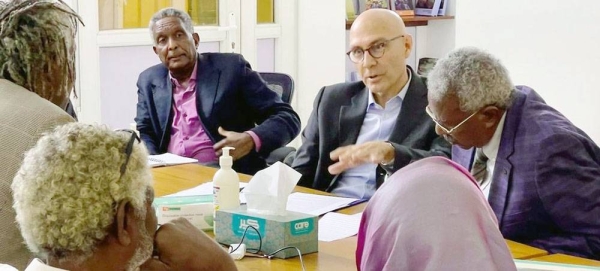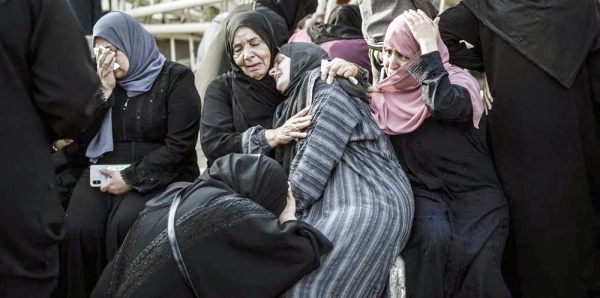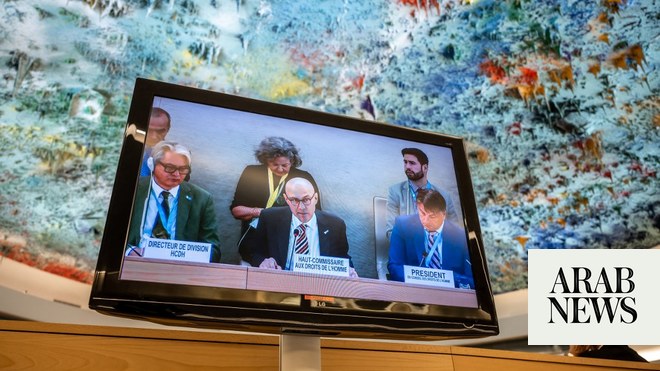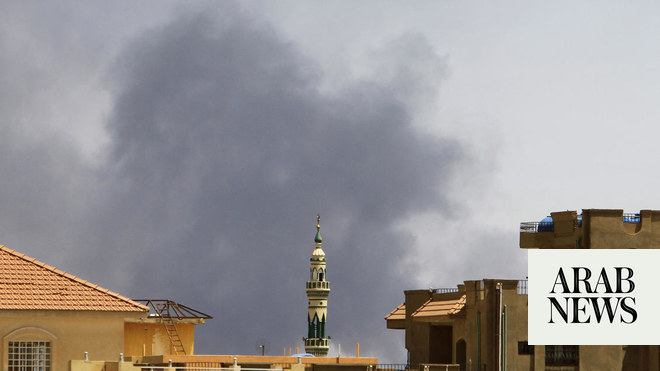
The UN High Commissioner for Human Rights, Volker Türk, on Tuesday called for an immediate end to the hostilities in Sudan and pleaded for the opposing sides in the military power struggle to return to the negotiating table, as reports emerged of a proposed 24-hour pause in the fighting.
“Sudan has already endured so much pain and suffering. The fighting is born out of power games and personal interests that only serve to alienate the democratic aspirations of the population,” said Türk.
He added, “Do those responsible not understand that the civilian population now only craves a peaceful life?”
The Sudanese army and a rival paramilitary group known as the Rapid Support Forces (RSF) have been locked in intense fighting for four days.
The unrest erupted as Sudan appeared to be returning to the path towards democratic transition following three decades of military rule.
International media reported that the sides have agreed to a 24-hour ceasefire, which is set to begin at 6 p.m., local time.
In the interim, 270 people have been killed and 2,700 have been injured, according to the World Health Organization (WHO), citing authorities.
Among those killed were three staff members with the World Food Program (WFP) working in North Darfur, prompting a temporary suspension of activities across the county. UN agencies in Sudan have also halted most of their operations.
Most of the fighting has occurred in the capital, Khartoum, where crossfire at the airport also reportedly damaged a UN Humanitarian Air Service (UNHAS) plane which could seriously affect access to remote areas, where needs are highest.
Nearly one third of the Sudanese population, almost 16 million people, were in need of aid at the start of this year.
“Thousands upon thousands of civilians are trapped in their homes, shielding from the fighting, with no electricity, unable to venture out and worried about running out of food, drinking water and medicine,” Türk said.
Sudan has a history of instability. The military toppled long-time leader Omar Al-Bashir in April 2019 after mass protests. The former president had ruled for more than 25 years.
The military then overthrew a power-sharing government in October 2021, putting two men at the helm — the head of the army and his deputy, who is also the head of the RSF. Both were at odds over the process of restoring civilian rule.
Türk urged the warring sides to remind their fighters of their obligation to ensure the protection of civilians and civilian infrastructure, such as schools and hospitals, as stated under international law.
The UN rights chief also said he was appalled by reports of attempted rape.
He called for prompt, thorough and independent investigations into the killings of civilians, including the WFP staff, along with other reported violations, adding that those responsible must be held to account.
“Only a few weeks ago, Sudan appeared to be on the right path towards an agreement that would restore civilian rule,” said Türk.
“Common sense must prevail, and all parties must act to de-escalate tensions. The shared interests of the Sudanese people must come first.”
WHO chief Tedros Adhanom Ghebreyesus has also called for an end to the fighting in Sudan, describing the situation as “deeply disturbing”.
The World Health Organization’s Director-General condemned the loss of life and expressed solidarity with the population.
“I urge all sides to heed the calls for a humanitarian ceasefire, to silence the guns and to work towards a peaceful resolution,” said Tedros, speaking on Tuesday during his latest media briefing from the agency’s headquarters in Geneva.
He told journalists that hospitals in Khartoum have reported shortages of medical personnel and lifesaving supplies. WHO also distributed supplies to health facilities prior to the escalation, which are now exhausted.
Movement has been restricted, making it difficult for health workers and ambulances to reach health facilities, thus putting further lives at risk, he added. Fuel shortages for hospital generators, as well as water and power cuts are also reportedly affecting the running of hospitals and other health facilities.
“There are disturbing reports of some health facilities being looted and others being used for military purposes,” he added.
“It is also reported that some hospitals are already closed, or on the brink of closure, due to attacks, and a lack of medical personnel and medical supplies.
Echoing the UN human rights chief, Tedros called on all parties to comply with their obligations under international law, stressing that healthcare facilities and workers must never be a target.
He said WHO teams on the ground will continue to work closely with partners and health authorities to try and fill gaps in the provision of health care, especially for trauma.
At an earlier briefing in Geneva, UN humanitarian agencies and partners called for an immediate end to the hostilities to ensure medical workers and ambulances can deliver assistance to the wounded.
“The truth is that at the moment it is almost impossible to provide any humanitarian services in and around Khartoum,” said Farid Aiywar, head of delegation for the International Federation of Red Cross and Red Crescent Societies (IFRC).
“We have thousands of volunteers who are ready, able and trained to perform humanitarian services. Unfortunately, due to the current situation, they are not able to move,” he added.
“We have ambulances, we have people who are able to provide first aid, psychosocial support, but that will only be possible once that humanitarian corridor is assured by all parties.”
The UN has underscored the critical importance of helping all those in need, but insecurity has forced the interruption of humanitarian operations in many states. — UN News












